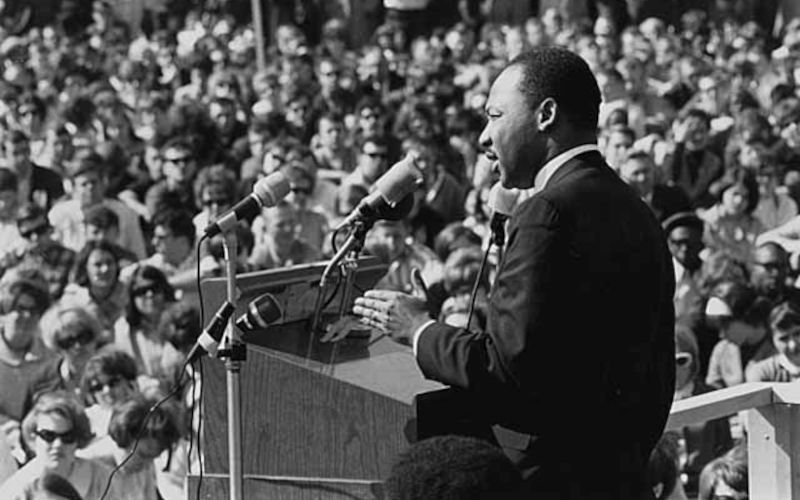My dinner with Dr. Martin Luther King
January 15, 2023
It was 1967 in America. I was a student at Drew University and it was my role on the Student Council to invite speakers for the student forums. I wrote to Dr King. Would he come to speak to us? He wrote back to say he would.
I booked the auditorium and put the notice in the student newsletter. The university administration contacted me. Admin hadnt ever contacted me before - not when the book reviewer from the New York Times came, or when the local mayor came to further town-gown harmony.
What could admin want? Have you organised security? No, but I should have. Thankfully the university took over that role and coordinated with Dr Kings security.
The President of the Student Council and I met Dr King at his car and escorted him to the cafeteria where we pushed our plastic trays along the metal rail scooping out our food. We were then escorted to a side booth where a security man stood with his back to us watching the other students trying to see us. Dr King spoke slowly in a soft low voice. He asked if we had any coloured people at our university. Dr Kings organisation was and is the National Association for the Advancement of Coloured People. In the last fifty years terms have included Black, Black American, Black African and People of Colour.
We told him there were three Negroes on our campus. Soon, realising that we wide-eyed youth were too awestruck to say much, he gently took over the conversation. I cant remember much of what he said, but I do remember one thing. He changed his tone from quiet accommodation to intensely instructive.
I want you to remember just one thing. Welfare is the ruination of my people. He stared hard at us as he said it, his big round eyes looking deep into my consciousness. At the time, political parties were touting for Negro votes by promising the single mothers benefits, extended welfare, food stamps and other programs attractive to the American underclass. Was welfare going to perpetuate that underclass? No doubt dozens of PhD theses have been written examining that question.
I gave a short introduction then Dr King stepped up to the microphone and in a deep, slow, commanding voice spoke to the audience of white students and three Negroes. He thanked us for the invitation and told us about NAACP, its work, its progress and the changes still needed to be made.
He was so inspiring that we students decided to do something. What? One of the Negroes students said he couldnt get his hair cut in town. That was it, a cause was born. We picketed the barber shop. Soon the town-gown harmony turned sour. One person spat at me as I stood with my sign. Many people clapped and gave the thumbs up. The barber was upset, claiming that if he served Negroes no white person would ever come into his shop again. He would go out of business. We picketed anyway. Having raised awareness, the State passed a law requiring barbers to serve Negroes.
As we mark Martin Luther King Day, January 16, fifty-five years since his assassination and fifty-five years since Australian indigenous people were given the right to vote, so much has changed, yet so much remains for the NAACP and all of us to do.

